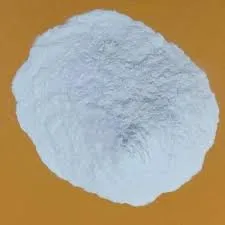
សីហា . 14, 2024 00:03 Back to list
Exploring the Versatile Applications of Hydroxyethyl Cellulose in Various Industries and Products
Hydroxyethyl Cellulose Versatile Applications and Uses
Hydroxyethyl cellulose (HEC) is a non-ionic, water-soluble polymer derived from cellulose, which is a naturally occurring biopolymer. Due to its unique properties, HEC has gained popularity in various industries, including pharmaceuticals, cosmetics, food, and construction. This article explores the diverse applications of hydroxyethyl cellulose, highlighting its significance across different sectors.
One of the primary uses of hydroxyethyl cellulose is as a thickening agent. In the cosmetics and personal care industry, HEC is commonly found in formulations such as creams, lotions, shampoos, and gel products. Its ability to enhance viscosity without altering the texture of the formulation makes it an ideal component for products designed for moisturizing and therapeutic purposes. Additionally, HEC’s water-retaining properties help improve skin hydration, contributing to the effectiveness of skincare products.
Hydroxyethyl Cellulose Versatile Applications and Uses
The food industry also benefits from the versatility of hydroxyethyl cellulose. HEC is used as a food additive, primarily for its thickening, emulsifying, and stabilizing properties. It can improve the texture and mouthfeel of various food products, including sauces, dressings, and baked goods. In gluten-free baking, HEC helps improve dough structure and moisture retention, mimicking the properties of gluten and ensuring a desirable final product. Its approval as a food additive by regulatory bodies further underpins its safety for consumption.
hydroxy ethyl cellulose uses

In construction, hydroxyethyl cellulose is valued for its ability to enhance the workability of cement and gypsum-based products. It is commonly used in tile adhesives, grouts, and plaster formulations. HEC improves the flow and adhesion of these materials, facilitating easier application and ensuring better performance post-application. Additionally, its water retention capabilities help prevent premature drying of cement mixtures, thereby improving the final strength and durability of the construction materials.
Another important application of HEC is in the coatings and paints industry. It is utilized as a thickener and stabilizer in water-based paints, providing uniformity and preventing the settling of pigments. HEC contributes to the formulation of high-quality coatings that exhibit excellent adhesion and durability while maintaining ease of application. This is particularly relevant in the production of environmentally friendly paints with low volatile organic compounds (VOCs), as HEC assists in optimizing product performance while adhering to regulatory standards.
Finally, hydroxyethyl cellulose is recognized for its role in various industrial applications, including adhesives, inks, and wound dressings. Its biocompatibility and non-toxic nature make it suitable for medical applications, such as in the formulation of hydrogels for drug delivery systems and tissue engineering.
In conclusion, hydroxyethyl cellulose is a multifunctional polymer with a wide array of applications spanning several industries. Its properties make it an invaluable component in pharmaceuticals, cosmetics, food products, construction, coatings, and more. As industries continue to seek sustainable and efficient materials, the demand for hydroxyethyl cellulose is likely to grow, reinforcing its status as an essential ingredient in modern manufacturing processes.
-
Versatile Hpmc Uses in Different Industries
NewsJun.19,2025
-
Redispersible Powder's Role in Enhancing Durability of Construction Products
NewsJun.19,2025
-
Hydroxyethyl Cellulose Applications Driving Green Industrial Processes
NewsJun.19,2025
-
Exploring Different Redispersible Polymer Powder
NewsJun.19,2025
-
Choosing the Right Mortar Bonding Agent
NewsJun.19,2025
-
Applications and Significance of China Hpmc in Modern Industries
NewsJun.19,2025







